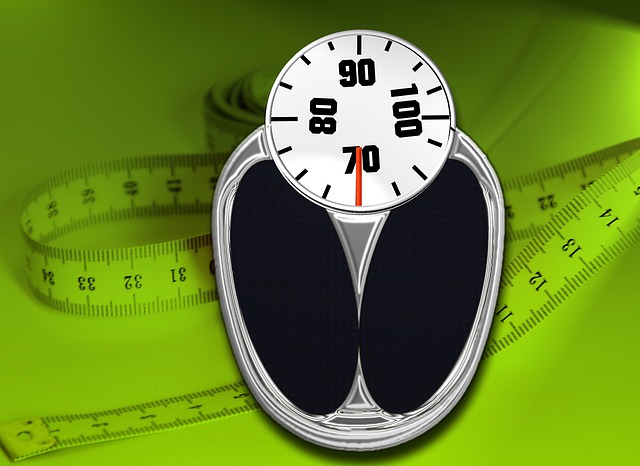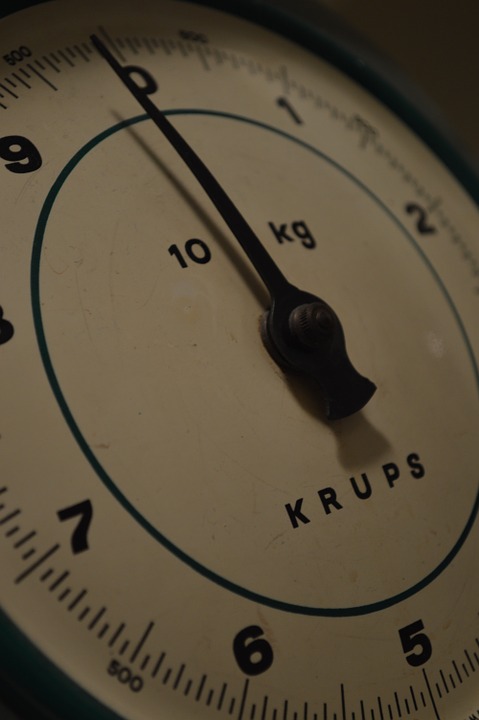Is Your Attitude Toward the Scale Sabotaging Your Weight Loss?
Is Your Attitude Toward the Scale Sabotaging Your Weight Loss?
April 08, 2016 at 3:30 PM

Stepping on the scale can mean a lot of different things to a lot of different people. If you’re trying to lose weight, the moment before weighing yourself can be a moment of profound anxiety. This is normal, but how do you know if this anxiety is beyond the bounds of what’s acceptable? Could it even be having a negative impact on your weight loss efforts?
Let’s take a closer look at best practices for weigh-ins, how to know if it might be time to step off the scale, and what to do if you’re afraid your obsession with weighing in could be having a negative impact.
What You Need to Know About Weigh-Ins
The Benefits of Regular Weigh-Ins
Weigh-ins are an important part of any on-going weight loss or maintenance effort. While it’s not a perfect method, it gives you a decent picture of how much progress is being made, when you’ve hit a plateau, and other useful insights into your physical fitness.
Studies have also shown that daily weigh ins can help with long-term weight loss.
The Downsides of Regular Weigh-Ins
Remember how we said it’s not a perfect method?
Simply weighing yourself does nothing to tell you about the composition of your body weight, i.e. how much muscle has been gained or fat lost.
What’s more, body weight can fluctuate significantly from day to day, and even throughout a single day, completely naturally and independent of one’s diet or exercise. This can be frustrating to people who are looking for a simple linear course of progress in one direction or another.
Best Practices for Weighing Yourself
Experts disagree over whether daily or weekly weigh ins are preferable, but few advise weighing yourself any less frequently than that. During the medically supervised weight-loss programs at Medical Weight Loss Solutions, you can expect weekly consultations and body composition analyses.
Regardless of how often you weight yourself, consistency is key: weigh yourself during the same time of day at the very least (first thing in the morning is best).

When is Weighing Yourself a Problem?
If any of these signs sound familiar, you might have an unhealthy attitude toward your regular weigh ins, and it might be time to reevaluate your mindset, if not your actual approach.
You’re constantly dreading your weigh ins. Like we said, some anxiety or hesitation before weigh ins is completely normal, but if you’re worried or anxious all the time, especially to the extent that it’s interfering with other aspects of your life, it may be time to reevaluate.
You weight yourself multiple times per day. Remember that body weight fluctuates naturally throughout the day – there’s nothing constructive to be learned from multiple daily weigh ins. If this is a regular practice, it may be indicative of an unhealthy obsession.
You know your weight way too specifically. Most people can probably tell you how much they weight within 5 or 10 pounds of accuracy. If they’re actively tracking their weight, maybe within 1 to 5 pounds. If you know your weight at all times within fractions of a pound, it might be a bad sign.
How an Unhealthy Attitude toward the Scale Can Sabotage Weight Loss
Weighing yourself too often or otherwise expecting results that simply aren’t reasonable for a given time frame can make you feel discouraged and abandon a weight loss plan that would work perfectly fine if only you stuck with it.
Positive thinking, manageable goals, and consistency are all some of the most powerful weapons in any person’s weight loss arsenal. If your relationship toward the scale is having a negative effect on any of them, it might be time to cut it out or reevaluate. This will make it easier to stick with the kinds of healthy habits that lead to long-term weight loss, without frustration or self-sabotage.
For more information about weight loss, diet programs, personal training, and more, contact Medical Weight Loss Solutions in Wallingford, CT.
Top Image Credit: By Bill Branson, National Cancer Institute [Public domain or Public domain], via Wikimedia Commons


